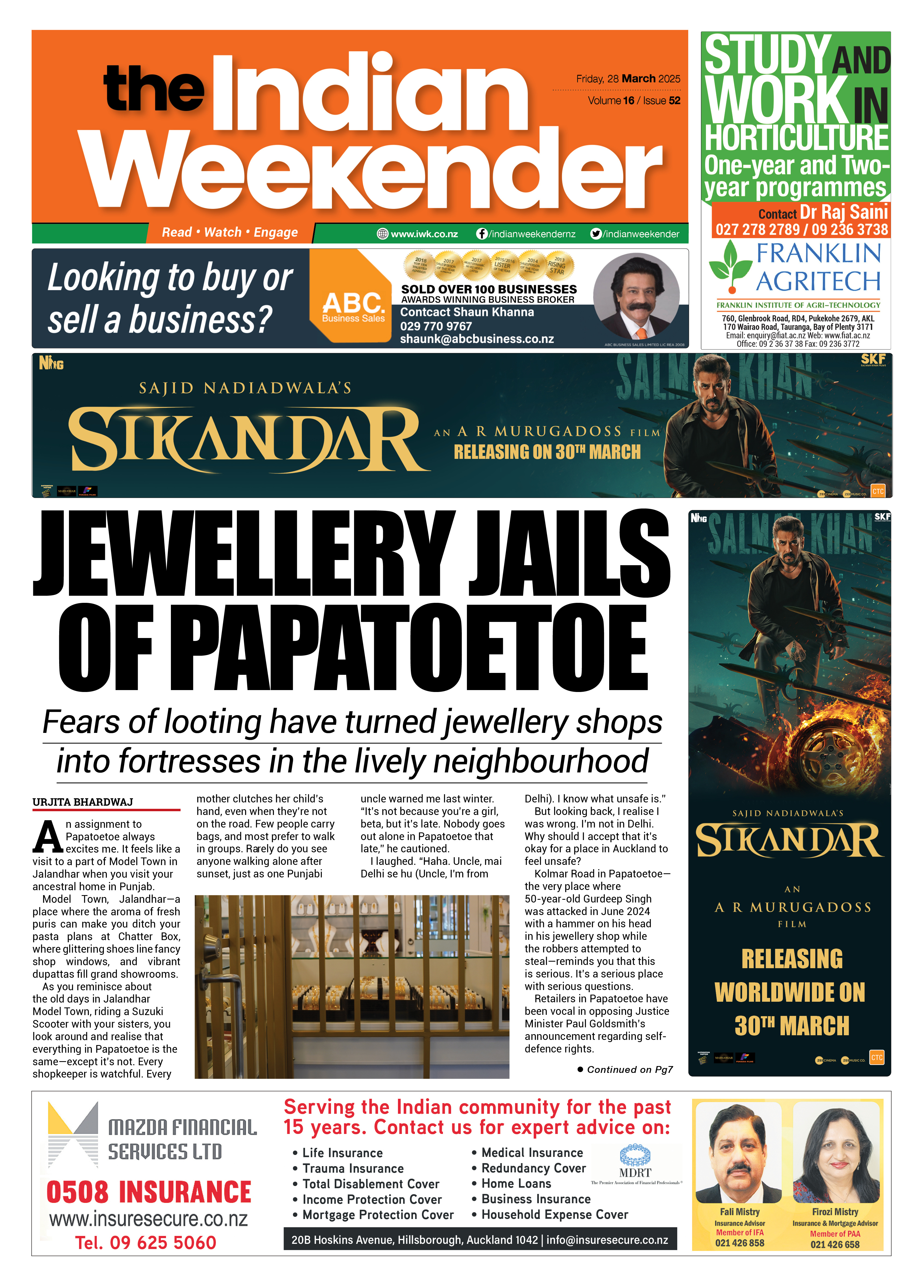Survey Uncovers Hardships For Women In NZ Tech

More than half of all female and gender-diverse professionals in New Zealand’s technology sector have considered leaving their current jobs, while over a third have thought about exiting the industry altogether, according to a new independent study by gender equity advocacy group Tech Beyond Gender.
Meena Satishkumar, author and founder of Tech Beyond Gender, surveyed women in New Zealand’s tech sector using simple random sampling, and the results are telling.
“It’s disappointing to see that in 2025 so many intelligent, brilliant women and gender-diverse people are facing these kinds of hurdles in the workplace,” said Satishkumar.
This year’s study surveyed 189, as opposed to 187 last year. The women and gender-diverse individuals working in technology, shed light on the persistent challenges they continue to face.
Satishkumar, also a Solution Architect and Tech Beyond Gender founder, surveyed women across various technical roles, including IT engineers, software developers, IT solution architects, delivery managers, and senior leaders.
A key issue highlighted was the gap between an organisation’s stated commitment to gender diversity and the reality on the ground. Nearly half (45%) reported a lack of active promotion for diversity initiatives, with many describing these efforts as superficial.
“That disconnect between stated commitments and actual practices really undermines employee confidence and organisational reputation,”Satishkumar noted
Lack of Representation in Senior Roles
Many participants pointed out that while entry-level roles might appear more diverse, representation diminishes significantly at higher levels.
“Several interviewees emphasised that although entry-level roles might be more diverse, as one moves up the chain of command, the representation of women and gender-diverse professionals sharply declines, especially in senior technical roles,” said Satishkumar.
“One narrative mentioned the ‘token diversity’ at higher levels, and the persistent under-representation in core technical roles despite external diversity commitments.”
Pay Transparency and Workplace Microaggressions
The study also found that 70% of respondents were dissatisfied with pay transparency, and nearly half felt their compensation was unfair. However, many chose to remain silent about pay inequities due to fear of repercussions.
There was a slight improvement in reports of gender-based microaggressions and discrimination, with 40% of participants encountering such issues, compared to 48% last year.
However, follow-up interviews suggested the number could be higher if experiences across the wider industry were considered.
“These microaggressions are insidious and include the normalisation of subtle biases like interruptions, idea appropriation and cultural assumptions – all of which create significant barriers to career advancement and development,” Satishkumar explained.
Among those interviewed, one participant described her experience of microaggressions as ‘hidden micromanagement,’ while another noted that every woman she had worked with had faced additional hurdles just to prove they were worthy of their roles.
A Systemic Issue Across Industries
Leadership consultant and gender equity advocate Dr Amanda Sterling said the findings align with other workplace studies on gender diversity.
“The surface-level attention to gender diversity is a huge factor, and through my own research, I’ve found that women – especially in leadership roles – experience greater emotional, mental and physical labours as they navigate conflicting demands and gendered expectations,” said Dr Sterling.
“Organisations risk losing good people with many women saying, ‘If that’s what leadership looks like, I don’t want it.’”
Calls for Action
In response to the findings, Tech Beyond Gender has put forward ten key recommendations aimed at creating systemic change, including embedding genuine inclusivity into HR practices, promoting transparent and equitable compensation, enforcing strong microaggression policies, and expanding training and development initiatives.
Satishkumar envisions a more inclusive and equitable tech industry where individuals of all gender identities have equal opportunities to thrive, contribute, and lead.
“By adopting these succinct yet comprehensive recommendations, organisations can build an integrated, equitable culture that enhances employee satisfaction, drives innovation, and strengthens their overall reputation in the competitive tech industry,” she said.
“With the sector already grappling with a huge skills shortage, we can’t afford to keep alienating and driving half of the potential workforce away. We can’t continue the way that we have.”

Meena Satishkumar is a Solution Architect with a passion for promoting gender diversity and
inclusion within the technology sector. With extensive experience and a commitment to driving
positive change, Satishkumar’s study offers valuable insights for organisations striving to create
more equitable and inclusive workplaces.





